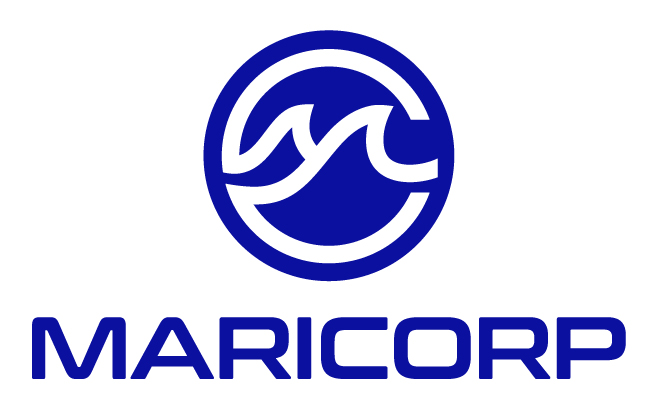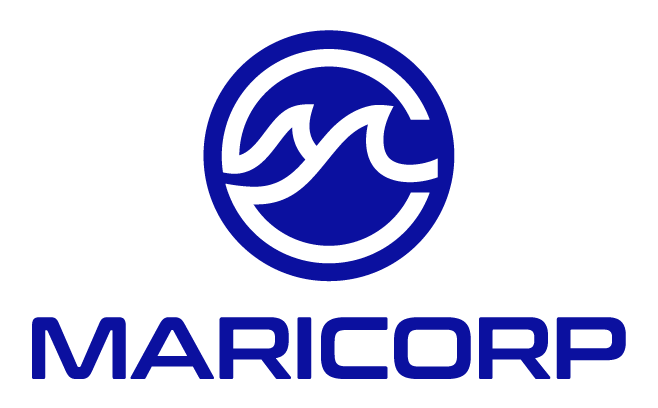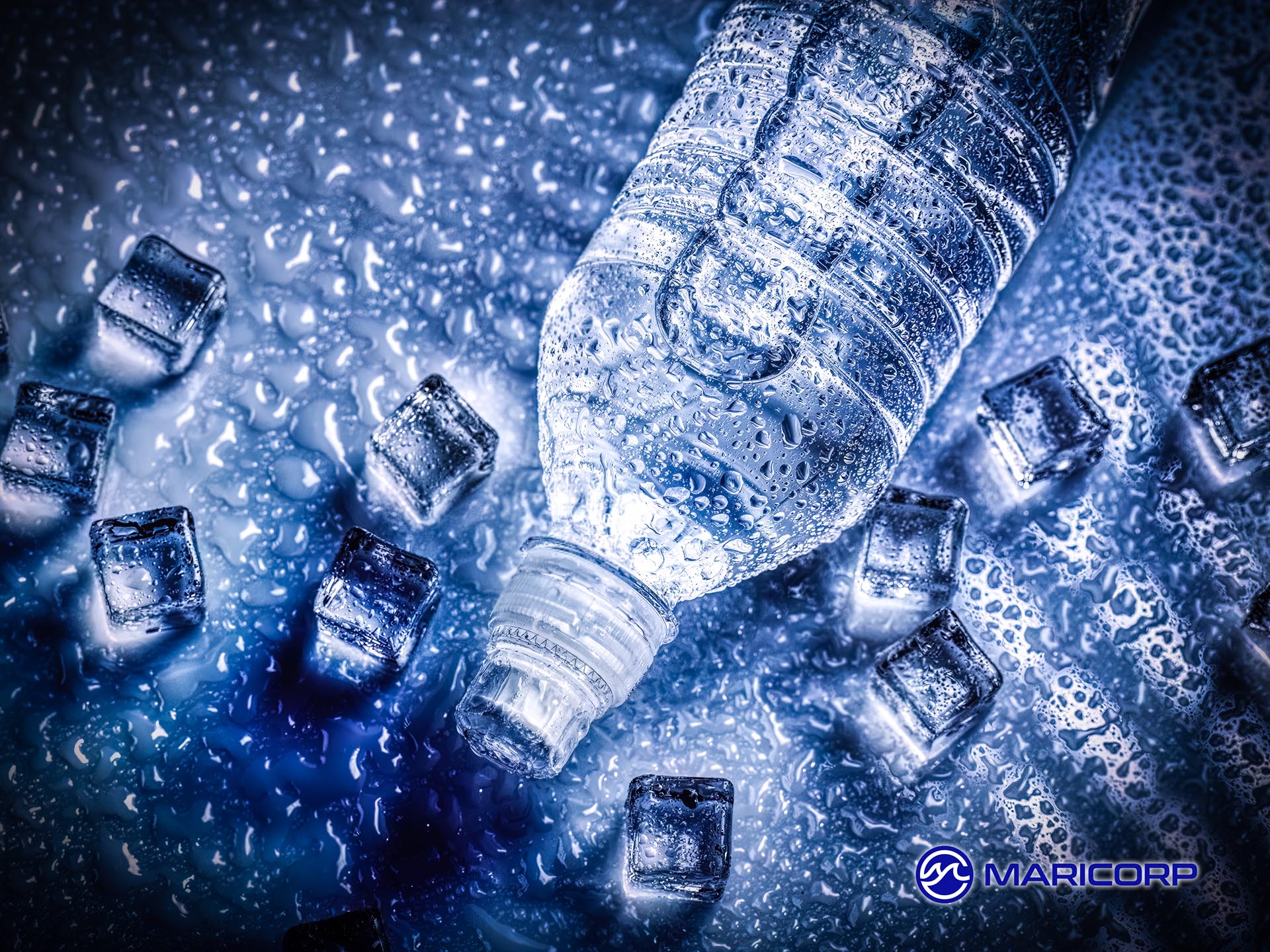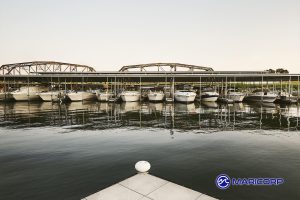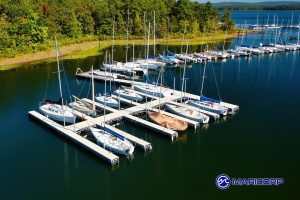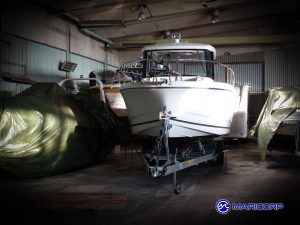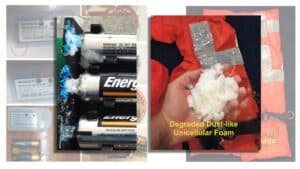Hot Days and Hard Work: Keep Staff Hydrated and Healthy
Staying Afloat: Hydration and Heat Safety for Marina Staff
Summer at the marina isn’t just busy—it’s demanding. Long hours under the sun, physical work, and exposure to heat and humidity make dehydration a serious concern for marina staff. While most safety conversations focus on guest incidents or equipment hazards, crew wellbeing is just as critical. Without proper hydration practices, team members face reduced performance, higher accident risk, and in extreme cases, heat illness that can require emergency care.
For marina operators, investing in hydration awareness and practices isn’t just good management—it’s essential to protecting staff health and maintaining operational reliability throughout the summer season.
Why Hydration Matters More at the Marina
Unlike office-based jobs, marina roles often involve:
- Prolonged sun exposure on docks and deck
- Manual labor such as fueling, lifting, docking assistance, and maintenance
- Limited shade or climate control
- Tight staffing levels during peak hours
According to the Centers for Disease Control and Prevention (CDC), heat-related illness can develop rapidly in outdoor workers, especially if hydration is inadequate. Even mild dehydration reduces concentration, increases fatigue, and slows response times—raising the chance of injury.
In extreme conditions, heatstroke can occur when the body can no longer regulate its temperature. This medical emergency can be fatal if untreated.
Signs of Dehydration and Heat Stress
Staff members should be trained to recognize the early signs of dehydration and heat illness, including:
- Headache
- Dry mouth or dizziness
- Muscle cramps
- Dark yellow urine
- Nausea or rapid heartbeat
- Sudden fatigue or confusion
The Occupational Safety and Health Administration (OSHA) recommends establishing a heat illness prevention program for any workplace with regular outdoor exposure—particularly in the maritime and recreation sectors.
Practical Strategies to Prevent Dehydration
- Provide Easy Access to Water, Everywhere
Hydration is only effective when it’s constant and convenient. Place refill stations or coolers in every work zone, including:
- Fuel docks
- Maintenance areas
- Launch ramps
- Marina offices and breakrooms
Use insulated water jugs with disposable or labeled reusable cups. For mobile staff like dockhands or shuttle drivers, consider issuing individual hydration packs or bottles and requiring carry-on duty.
- Set the Example and Normalize Breaks
Managers and lead staff should model hydration behaviors by drinking water in front of their teams and encouraging short water breaks without guilt. Even 30-second pauses every 30 minutes can help.
Create a schedule for longer shade breaks during extreme heat and stagger high-exertion tasks around the hottest part of the day (typically between 12–4 PM).
- Offer Electrolytes and Salt Replacements
While water is essential, so is replacing lost electrolytes—especially for those sweating for hours.
Stock break areas with:
- Electrolyte drink mixes or sports beverages
- Salted snacks like pretzels or trail mix
- Coconut water or low-sugar rehydration drinks
Avoid energy drinks or high-caffeine sodas, which can contribute to dehydration.
The National Institute for Occupational Safety and Health (NIOSH) emphasizes the importance of salt balance during prolonged heat exposure.
- Issue and Encourage Use of Shade Gear
Offer lightweight uniform options in light colors, wide-brim hats, cooling towels, and UV-protective neck gaiters.
Provide optional pop-up canopies or shade sails for workstations without overhead cover, and keep fans or misting systems in service bays or dry storage areas.
Tools to Support a Hydration-Safe Workplace
- Hydration Logs or Apps – Encourage team members to track water intake, especially on high-temperature days. Free apps like My Water (iOS / Android) or Hydro Coach (iOS / Android) offer reminders.
- Colored Urine Charts – Post visual hydration guides in restrooms or break areas to help staff self-monitor fluid needs.
- Weather-Based Safety Alerts – Use NOAA or smartphone apps to send high-heat alerts and prompt hydration reminders to your team.
Training and Team Culture
Dehydration prevention is most effective when it’s integrated into daily routines and reinforced through culture.
- Include heat safety in your onboarding and seasonal staff training
- Assign a “Hydration Buddy” system on busy weekends to help teammates look out for one another
- Reward or acknowledge hydration champions who encourage the team to stay safe
The American Red Cross provides downloadable workplace posters and guides on recognizing and responding to heat-related issues.
What to Do If Someone Shows Symptoms
Every marina should have a clear and practiced response protocol for heat-related illness:
- Move the person to a shaded or cool area immediately
- Encourage sipping cool water—unless they’re nauseous or disoriented
- Apply cool, wet cloths to the neck, face, and limbs
- Call emergency services if the person becomes confused, unresponsive, or shows signs of heatstroke (very high body temp, rapid pulse, unconsciousness)
Post emergency steps and contact numbers at all staff workstations, and consider a mid-season refresher session as temperatures rise.
Encouraging Accountability Without Overreach
Not everyone hydrates the same, and some team members may resist reminders. A strong hydration culture avoids nagging and instead emphasizes shared responsibility.
- Ask crew members during pre-shift huddles if everyone has their water bottle
- Designate shaded break times on the schedule
- Encourage use of hydration reminders without enforcing mandatory intake
Frame the message around performance and care, not compliance. Staff are more receptive when they feel supported, not monitored.
Looking Ahead
Peak boating season is also peak stress for marina teams. Heat, long hours, and hard surfaces take a toll that’s easy to overlook—until someone ends up in distress. By building hydration into the rhythm of each workday, marinas can reduce risk, maintain morale, and show their crews that safety extends beyond life jackets and fuel docks.
Making water accessible, modeling good habits, and protecting staff from the worst heat hours is a small investment with large returns: fewer missed shifts, stronger team cohesion, and a safer, healthier summer on the waterfront.
Related Safety Articles
*Sign up for our free newsletter “Marina Management Journal” so you can stay up to date
About MariCorp
Maricorp is one of the largest floating boat dock manufacturing and construction companies in the United States, specializing in galvanized steel floating docks and boat lift systems. With projects spanning coast-to-coast, Maricorp provides marina consultation and design, marine construction, marina repair and renovation, and boat dock disaster response and demolition.
